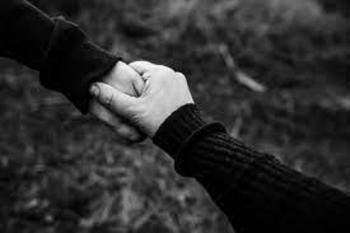 The law of opposites attracting is very true in relationships. Individuals who need and crave constant attention, intimacy, and positive affirmations about themselves and the future together often find themselves attracted to partners who flee intimacy.
The law of opposites attracting is very true in relationships. Individuals who need and crave constant attention, intimacy, and positive affirmations about themselves and the future together often find themselves attracted to partners who flee intimacy.
People who have an anxious or insecure attachment style are afraid of rejection or abandonment, often become highly dependent on partners, and constantly need reassurance in the relationship. They also tend to be focused on pleasing the partner and very sensitive to their moods while also demonstrating a lot of emotion and constantly craving both emotional and physical intimacy. These individuals are often labeled love addicts as they need to be in a relationship to feel whole.
These anxious attachment people gravitate to love avoidant people. The love avoidant person is often very similar to the distant, uncaring, neglectful, or even absent parent of the anxious attachment style partner. It is, however, a familiar style, and love avoidant people often mask their true behaviors in the early parts of a rom tionship. Keep in mind, the love avoidant style still needs human contact and relationships. Still, they are uncomfortable when confronted with this. In other words, they want to be close but dislike the thought of being close or dependent on another. To reinforce this, they distance themselves both emotionally and physically.
A love avoidant individual may be charming, happy, and spend time with you, even initiating this time spent together. Unavailable partners know they must demonstrate some level of intimacy at the beginning of the relationship. At the same time, the needs of the anxious and avoidant attachment types are opposites, and there is little chance of these types of relationships being healthy. Instead, avoidant and anxious attachment style partners create a toxic relationship with a high risk of emotional damage.
Signs of Love Avoidant Attachment Styles
Recognizing the early signs of love avoidant attachment styles helps anxious attachment style individuals to avoid getting caught in a toxic relationship. Some of the early signs to watch for include:
· Hot and cold emotions – it is common to see a wide range of emotions, from very focused on the relationship to cold and distant. Often this shift is very fast and occurs when talking about the future, making plans, or when the relationship is a pivot point.
· Missing in action – love avoidants often disappear for short or long periods of time without any advanced warning or explanation. They may actually disappear or just stop responding to text messages, phone calls, or other attempts at communication.
· I need my space – the love avoidant sees their independence, autonomy, and individual needs above that of any other. They may seem to live a whole different life without you, not sharing information or introducing you to friends or family.
· Lots of ex’s – love avoidant people tend to have short relationships with bad breakups or very long relationships that seem stuck in the dating stage. These are people who do not like to commit or find it difficult to sustain their independence if they do attempt to live with someone or get married.
· Keeps things separate – not only does the love avoidant keep their life, friends, and family separate, but they may also keep their things separate and be hesitant to share or mingle possessions.
· Excuses – the love avoidant has a lot of excuses for not wanting to rush into the relationship, even when you have been dating for months or years. They may talk about how relationships always fail, indicate they want to make sure everything is perfect or set some type of goal that has to be reached before a relationship can be considered. This goal will continue to move, ensuring commitment never has to occur.
People can learn to accommodate for their attachment styles and make changes in their thinking and behaviors. However, love avoidant people must want to change. Both individual and couple’s therapy is often required when an anxious attachment style and an avoidant attachment style want to build a loving, trusting, and mutually satisfactory relationship.
References
9 Easy Signs of Avoidant Attachment Style (From of An Avoidant)
https://psychcentral.com/blog/love-matters/2018/07/16-signs-of-an-avoidant-or-unavailable-partner#1
https://www.loveaddictionhelp.com/signs-you-re-dating-a-love-avoidant
Sherry Gaba, LCSW and Transformation Coach
Author of Love Smacked:How to Stop the Cycle of Relationship Addiction and Codependency to find Everlasting Love
And Wake Up Recovery for Toxic Relationships, Codependency and Love Addiction


